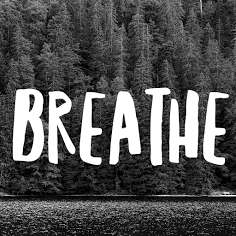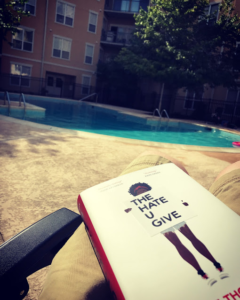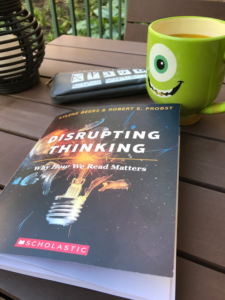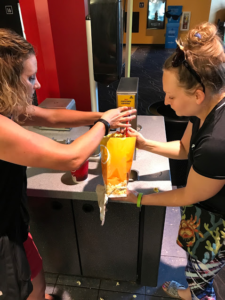Inspired Books:
The Best Personal Development Books for Teachers
This post starts a new series on our blog called “Inspired Books.” In this new series, we will share books that inspired us in some way. These are books that helped us live better, to be less overwhelmed, more productive, and happier. They are also books that helped us to grow in skill, whether personally or professionally.
We also love children’s and young adult books, and we will also include posts of some of our favorites in those categories. Lastly, we both belong to book clubs and are avid readers of fiction. We’ll share our favorites of the year with you as well because sometimes you just have to read for enjoyment!
You can find all of our book discussions by searching “inspired Books” in the search bar.
Inspired Books: Big Potential
One of the best personal development books for teachers we have read is Big Potential: How Transforming the Pursuit of Success Raises our Achievement, Happiness, and Well-Being by Shawn Achor.
Teachers may already know of former Harvard researcher Shawn Achor from his books on Happiness including The Happiness Advantage and The Orange Frog, both of which have been widely used in schools, and from his TED Talk which has been viewed over 15 million times.
The solo inspirational teacher is a myth
In Big Potential, Achor busts the myth that we achieve our best through our solo work as we work hard and strive for success. Society teaches us that it is our individual efforts that help us to thrive. We covet being the best- the top of the class, the fastest on the team, and honor the individual pursuit of excellence. We are judged and graded on our individual work. Yet in life, our success is often interconnected with that of others.
We’ve seen the myth of the individual hero in teaching. Our favorite teacher movies honor the solo teacher who works hard and through their personal efforts, often a great sacrifice to their personal life, changes a student, a class, or an entire school. The stories are inspiring, but often, not realistic.
There are huge benefits in working together
Achor’s research suggests that we need to stop trying to do everything alone. Working together allows us to find more energy, share resources, and lessen our stress. We are smarter together. We are stronger and more creative. We are also more resilient. Strong teamwork is even connected to measurable better health.
When we work together, we not only raise the performance of the group, but we also increase our own potential.
“The more you help people find their light, “Achor says, “ the brighter you both will shine” (p.18).
Strong teamwork leads to better success and more personal happiness.
Teachers need the benefits of working together
Teachers today are desperate to reduce stress and increase resilience. Resilience grows when you have a strong support system. Teachers want more time and energy, and a better balance in home and work lives. Being surrounded by people who will lift you up is a game changer. The more people we have to share stress and offer solutions, the lighter our load will be.
“We all have the power to make others better. And when we commit to using that power, there is no limit to what we can accomplish” (p. 54).
You may have heard or used the phrase “dream team.” Achor calls this system of support a “star system.”
In work and life, Achor shares, the way to win is to create a star system, a group of people whose members “assist each other, carry each other on their shoulders, and make each other better” (p.68).
Achor’s research consistently shows one strong conclusion
“You can be a superstar; you just can’t be one alone. What you need is a star system, a constellation of positive, authentic influencers who support each other, reinforce each other, and make each other better.”
This is a message that speaks strongly to us. At Inspired Together Teachers, our goal is to build a community of teachers who can come together to grow and learn, to support each other, and work together for the benefit of everyone. As the tag line in the heading of blog says, “We’re better together.”
In our list of best personal development books for teachers, Big Potential ranks in the top. It is definitely worth a read.
Our best,
Achor, S. (2018). Big potential: How transforming the pursuit of success raises our achievement, happiness and well-being. New York: Currency.








 The school year is rapidly coming to an end for most teachers. Some teachers will work in year-round schools, others will teach summer school or work at summer jobs. Many of you will attend continuing education in the next months. All of us want to find some time to relax and enjoy the summer with our family and friends.
The school year is rapidly coming to an end for most teachers. Some teachers will work in year-round schools, others will teach summer school or work at summer jobs. Many of you will attend continuing education in the next months. All of us want to find some time to relax and enjoy the summer with our family and friends.



